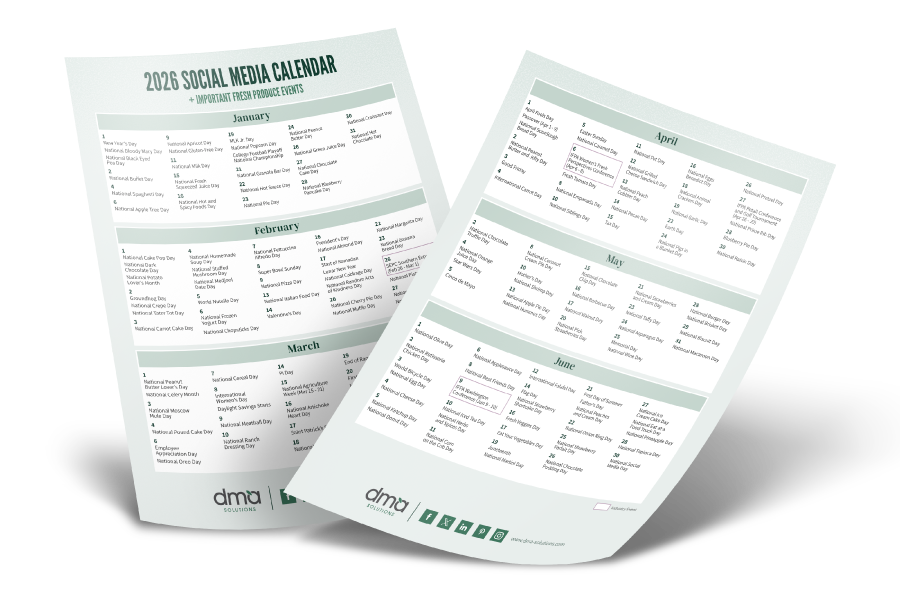“I did then what I knew how to do. Now that I know better, I do better.” – Maya Angelou
For the DMA team, that quote has had a special meaning this past year. If you’re a close friend to DMA or even just a regular Core reader, you know an important part of our company culture is to constantly be seeking, sharing and learning. That applies to how we deliver marketing services, how we consult and support our clients, and how we drive our company forward.
But all those things only move in a positive direction if we are each effectively contributing, receiving, leading and evolving. And that’s really what 2017 has been about for the leadership team as well as the company as a whole – owning our role in that positive momentum.
To help us better understand our individual and collective strengths and uncover our weaknesses so that we can address them head on, we utilize four different assessments. Each assessment analyzes personality types and communication styles from a unique angle that really provides us with varying and highly informative feedback to make ourselves and our company better.
Here are the four assessments that our team has taken and what type of information can be leveraged from each:
- Archetypes – With this assessment, you will discover how the world sees YOU based on the innate characteristics that make you uniquely fascinating – referred to as your Fascination Advantages®. These advantages help you identify how you can leverage your most valuable traits to make a positive impression in all your social and professional interactions. The communication styles of the seven primary Fascination Advantages® are:
- Innovation – You tweak traditional conversation.
- Passion – You immediate create an emotional connection.
- Power – You speak with authority and control.
- Prestige – You seek results and respect.
- Trust – You bring even-keeled consistency.
- Mystique – You listen carefully and observe.
- Alert – You focus on the task at hand.
- DiSC – This behavior assessment groups individuals into four different behavioral trait categories in order to provide a common language that people can use to better understand themselves and adapt their behaviors with others. By understanding which category you and your team members fit into, you can improve work productivity, teamwork, leadership and communication. DiSC’s four behavioral categories are:
- Dominance – Individual places emphasis on accomplishing results, the bottom line, confidence
- Influence – Individual places emphasis on influencing or persuading others, openness, relationships
- Steadiness – Individual places emphasis on cooperation, sincerity, dependability
- Conscientiousness – Person places emphasis on quality and accuracy, expertise, competency
- Clifton Strenths® – Based on the idea that people spend more time fixing shortcomings than developing their strengths, this assessment was designed to help individuals discover and leverage their innate talents. The assessment organizes 34 talent themes from strongest to weakest for each person and highlights the top 5 talents that really make you you. The 34 themes are organized into four domains that describe how people and teams use their talents to work with information, make things happen, influence others and build relationships.
- Strategic Thinking – How do you absorb, think about and analyze information and situations?
- Executing – How do you make things happen?
- Influencing – How do you influence others?
- Relationship Building – How do you build and nurture strong relationships?
- Enneagram – The Enneagram test utilizes 144 questions to identify your basic personality and give you a deeper, more objective look at the behaviors, attitudes, defenses, and motivations that you naturally inclined towards when you are operating at your very best and when you are operating at your very worst. The nine basic personality types are:
- The Reformer – The Rational, Idealistic Type: Principled, Purposeful, Self-Controlled, and Perfectionistic
- The Helper – The Caring, Interpersonal Type: Demonstrative, Generous, People-Pleasing, and Possessive
- The Achiever – The Success-Oriented, Pragmatic Type: Adaptive, Excelling, Driven, and Image-Conscious
- The Individualist – The Sensitive, Withdrawn Type: Expressive, Dramatic, Self-Absorbed, and Temperamental
- The Investigator – The Intense, Cerebral Type: Perceptive, Innovative, Secretive, and Isolated
- The Loyalist – The Committed, Security-Oriented Type: Engaging, Responsible, Anxious, and Suspicious
- The Enthusiast – The Busy, Fun-Loving Type: Spontaneous, Versatile, Distractible, and Scattered
- The Challenger – The Powerful, Dominating Type: Self-Confident, Decisive, Willful, and Confrontational
- The Peacemaker – The Easygoing, Self-Effacing Type: Receptive, Reassuring, Agreeable, and Complacent
While four assessments might seem like a lot, we really took something valuable away from each one. If you are just venturing into the world of self-assessment for yourself and your team, start with one. Set a timeline to have them complete it, and then host a meeting to talk through your team’s results and what everyone learned from the experience. The idea is not to use these assessments to exploit weak links, but to create healthy dialogue around what works and what challenges you can start to chip away at. And the end of the day, personal and team growth should be everyone’s collective goal.

